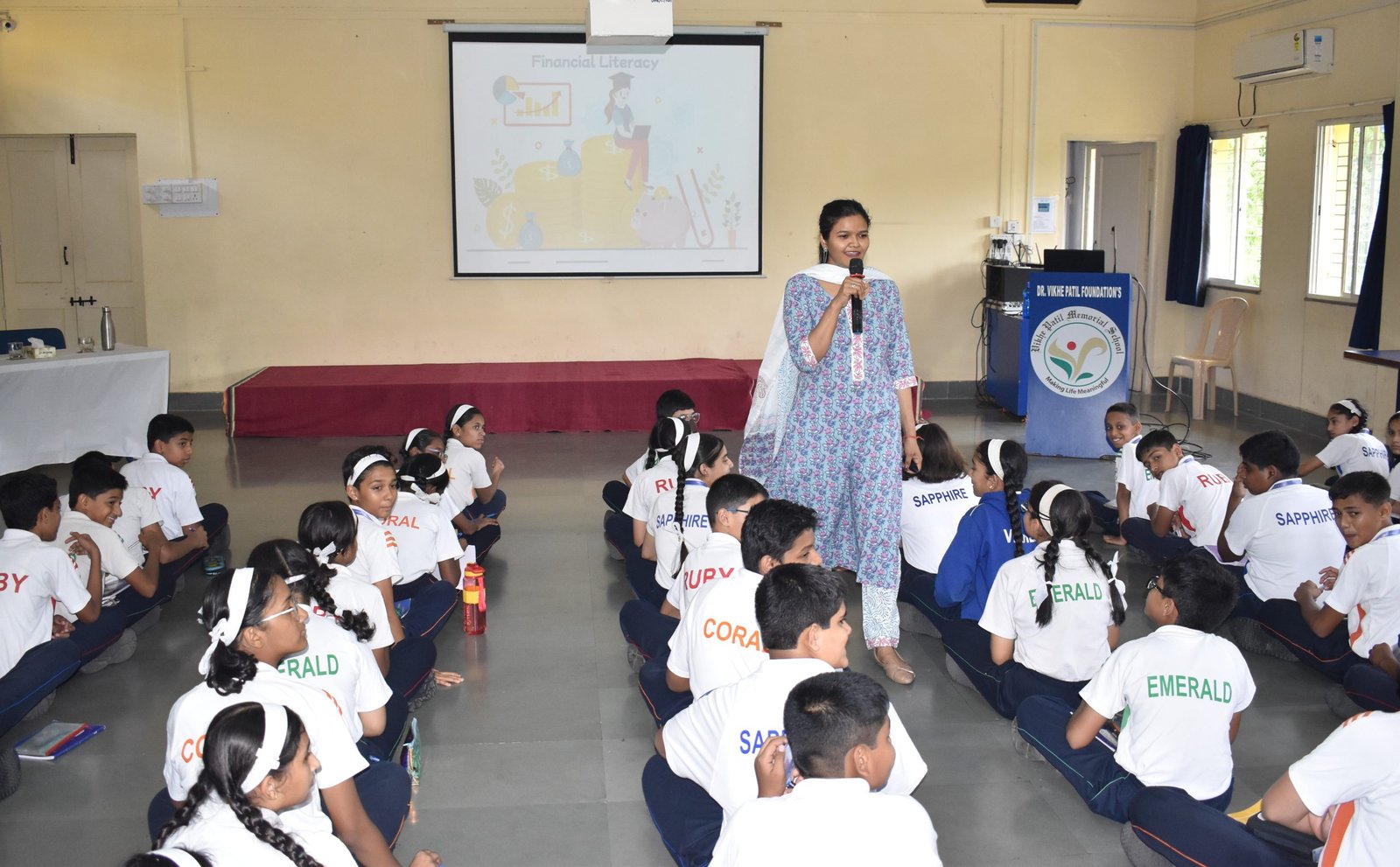
Report on Financial Literacy Session
Date -11 th June 2025
Venue – AV Room
Participants -VIII
Resource Person -Ms Puja Sah
Topic- Banks and their Types of Accounts
“An investment in knowledge pays the best interest” Benjamin Franklin
As part of our efforts to build financial awareness among students, a session on financial literacy was conducted on the topic Saving and Investment, and Banks and their Types of Accounts. In today’s world, understanding how to manage money is as important as earning
it. We began by explaining the concept of saving — putting aside a portion of income regularly for future needs and emergencies. This led to a discussion on investment, which involves using money to earn a return, such as through mutual funds, gold, or stocks. Students learned that while saving ensures safety, investment helps money grow over time.
We then introduced banks as trusted institutions that help us manage money safely. A bank serves as a mediator between people who want to save and those who need funds for various purposes. There are different types of bank accounts designed to meet various financial needs. Savings accounts are meant for storing money with interest while offering high liquidity. Current accounts are typically used by businesses and allow for frequent transactions without earning interest. Fixed deposit accounts offer higher interest rates in exchange for locking funds for a specific period. Recurring deposit accounts allow individuals to deposit a fixed amount regularly and earn interest over time. Understanding these types of accounts helps individuals choose the right tools for managing their finances efficiently. In conclusion, a good grasp of saving, investment, and the banking system is essential for financial empowerment. By using bank accounts wisely and balancing saving with strategic investments, individuals can build a secure and prosperous financial future.
The session encouraged active student participation and questions. As Benjamin Franklin quoted, “An investment in knowledge pays the best interest”. This helped them understand that learning how to manage money is itself a powerful investment. Such financial literacy sessions are essential for preparing our young learners to become responsible and informed citizens in the future.




